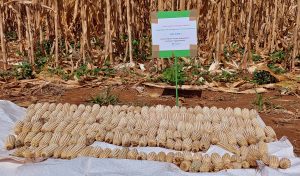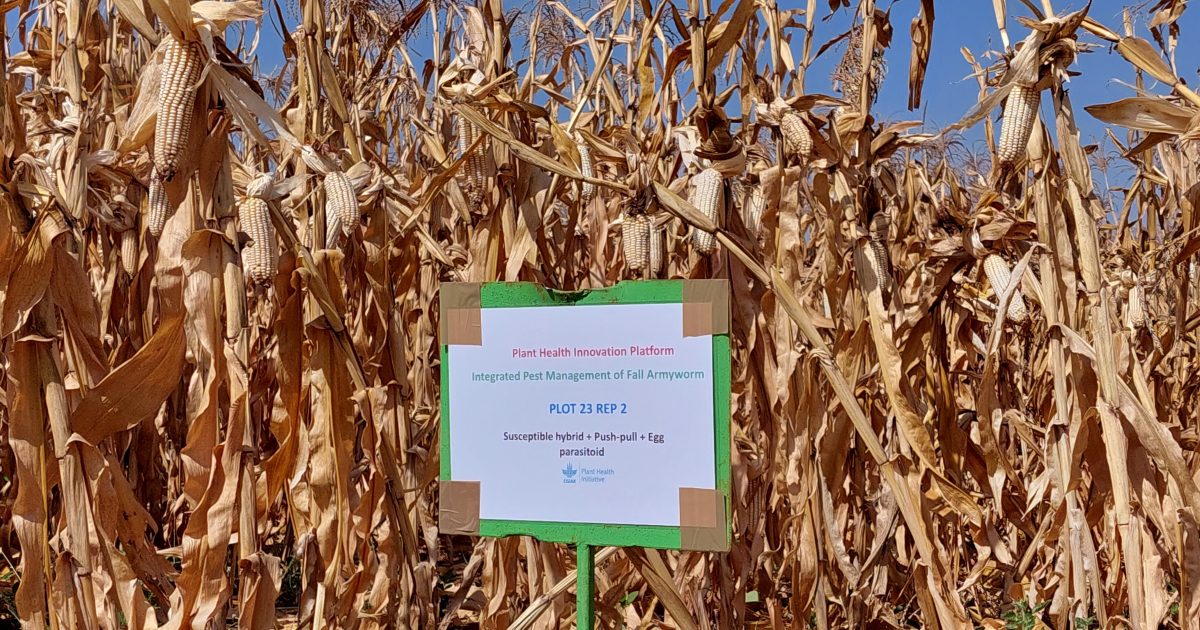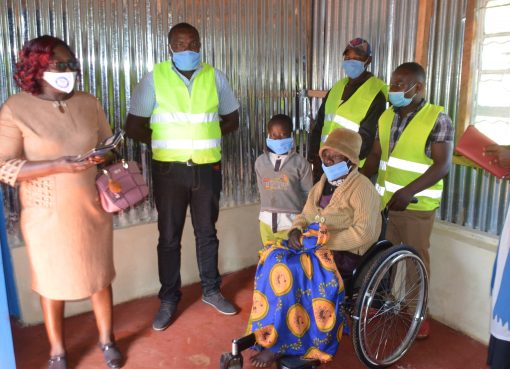Farmers in the country may soon enjoy better yields once the government certifies new varieties of maize that were found to be resistant to the invasive Fall Army Worm (FAW) parasite.
They stand to increase their production in coming years once the Ministry of Agriculture which chairs the National Varieties Release Committee (NRVC) approves the three FAW tolerant maize varieties in the next two weeks.
The breakthrough comes after three years of intensive research and trials conducted in Kenya and during the United Nations International Year of Plant Health and represents a significant advance in the global fight against fall armyworm.
(NVRC) is expected to approve the three maize varieties by February 20 and thereafter within 14 days the same will be gazette.
The Kenya Plant Health Inspectorate Service (KEPHIS) which is secretariat to the NVRC recommended for release of the FAWTH2001, FAWTH2002 and FAWTH2003 sometimes back after preliminary results after the research posted impressive performance against the pest.
According to the Kenya Agriculture and Livestock Research Organization (KALRO) Director General Eliud Kireger the new varieties will help in reducing the destruction that farmers have been grappling with since 2017 when the pest was first detected in the country.
“This is a milestone as far as fighting the spread of FAW is concerned. The varieties have been taken through the requisite processes and in the next about two weeks, the varieties will be approved by the NVRC and eventually gazetted awaiting commercialization by seed companies,” said Dr. Kireger.
Dr. Kireger was speaking at the Kiboko research Centre in Makueni when he received 3 facilities that will assist breeders in their research.
The seed drier shed, cold room and water reservoir to support irrigation have been financed by various donors through the International Maize and Wheat Improvement Center (CiMMYT) are worth ksh62.3 million (USD 500,000) .
Dr. Kireger noted that seed is a critical input into productivity of quality seeds and that the equipment’s being commissioned will assist in fast tracking the breed process as well as the need for more research work to produce better seeds for the farmers.
“Because of drought in this area we need fast tracking of the breeding process thus the need for more space so that there is no cross pollination and interference. The improved irrigation system will also assist since the older one we were using overhead irrigation which was wasteful and expensive”, he said
What the researchers are working on currently especially on the maize front is solving the problem of MLN, fall army worm, stem borer and drought,

CiMMYT Director, Dr. Prassana Boddupalli explained that the realization of the FAW tolerant maize varieties followed combined efforts by both local and international research organizations.
Working on a programme dubbed Plant Health Innovation Platform (PHIP) that seeks to use Integrated Pest Management (IPM) of FAW using various technologies, he said that the project introduced new technologies and tolerant maize varieties to contain the spread of FAW in the country with the varieties developed from Mexico germplasm .
“Climate change is a reality and in these new climates that are warmer and drier we need to have crop varieties that can better this drought stress considering that Kenya has suffered one of the worst drought last year and the only way to deal with the challenge is to accelerate breeding drought plus heat tolerant crops together with resistance to major diseases and insect pests”, he said
He added that the release, decision and final recommendations that will be done on the 20th of February by the government means that innovation is already available, bio pesticides are already available , biological control agents are there and the basic elements for the innovation are available.
“What is being done together with the farmers in the field is identifying the packages that work well for them to be scaled up”, he said
The performance trial already undertaken on the varieties Dr. prassana said has proved positive and thus will help farmers going forward. The varieties are conventional but more superior compared to farmers’ preferred seed varieties.
On the facilities donated to the Kiboko Research Centre, Dr. Prassana said the irrigation reservoir will provide condition conducive growth for the germ-plasm, the drier will be able to dry the materials from the field quickly within 24 hours by having the moisture content reduced from 34 percent to 12 percent.
This he added will also accelerate time taken and instead of growing 2 crop seasons per years in this resuscitation they can grow 3 crop per year.
The cold room facilities will further enable the breeders and seed system specialists to store seed in high quality for longer duration of time, Dr. Prassana said.
The varieties have passed the national performance trial by the KEPHIS and the development of the seed varieties is part of taming the vagaries of climate change which has devastated agriculture in the country for a long time.
Once approved Boddupalli explained that the same will be shared with local organisations and agriculture extension units to commercialize them.
Maurice Makaa a farmer from makueni who has been involved in the development of the new varieties from the beginning of last year said they have been incurring losses due to FAW but with the new varieties it will be well for them.
“Kikwote group of farmers have been exporting baby corn maize to EU but when FAW invaded we could not do it anymore.This research is good and now we have hope”, Makaa said
Kenya started testing FAW tolerant varieties developed by Cimmyt. The technology experiment was to conclude this February 2023.
By Wangari Ndirangu





